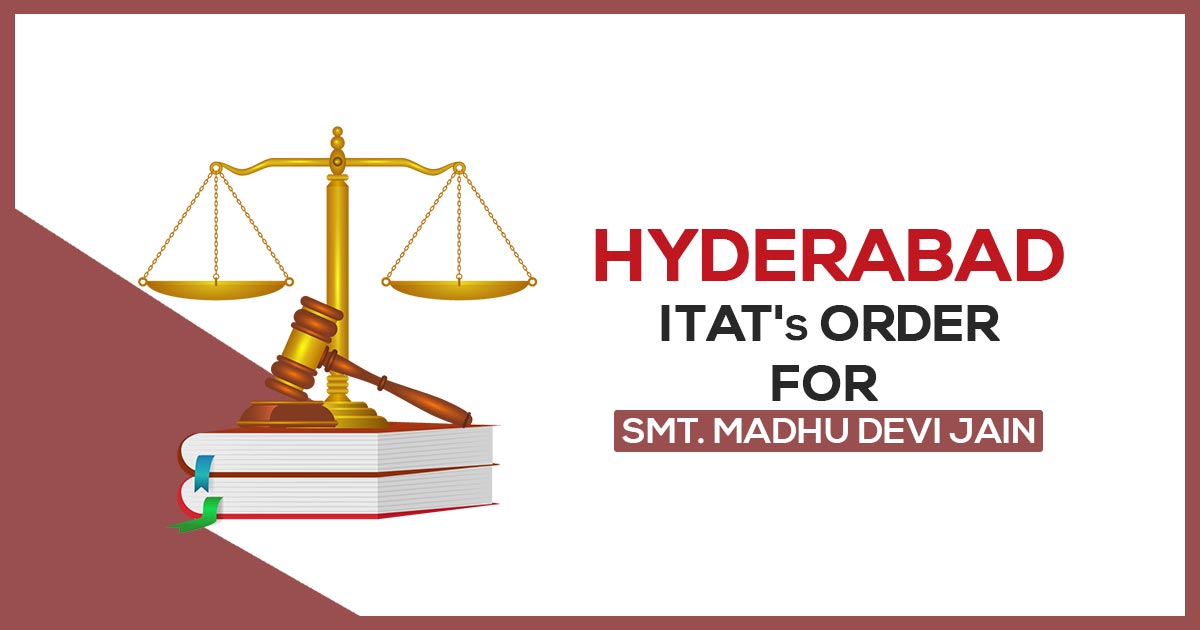
The Hyderabad bench of the Income Tax Appellate Tribunal (ITAT) has ruled that in order to claim a capital gain deduction under Section 54F of the Income Tax Act, 1961, it is essential to retain ownership of residential flats for a minimum period of three years.
The taxpayer in question is an individual with income derived from various sources, including house property, business income, and capital gains. She electronically filed her income tax return, disclosing an income of Rs. 3,49,568 after applying a deduction under Chapter VIA of Rs. 1701. Her case underwent scrutiny selection through Computer-Assisted Scrutiny Selection (CASS), and the Assessing Officer concluded the assessment under Section 143(3) of the Income Tax Act, accepting the reported income.
The Principal Commissioner of Income Tax (PCIT) noted that the taxpayer did not meet the conditions specified under Section 54F of the Income Tax Act in this particular case. The developer, M/s. Ace Venture of India Pvt Ltd, had entered into a development agreement with the taxpayer and three others, allotting them seven flats in ACE RATNA PEARL APARTMENT. The PCIT verified that the taxpayer had sold all these flats without holding them for the mandatory minimum period of three years from the date of acquisition. Consequently, he determined that the capital gains of Rs. 1,57,08,220 should be taxed at a rate of 30% in addition to her net taxable income.
As a result, the PCIT concluded that the Assessing Officer had incorrectly applied the provisions, constituting an error in the assessment process. Consequently, he set aside the Assessing Officer’s (AO) order and directed a reevaluation of the assessment, allowing the taxpayer an opportunity to present her case.
The representative argued that the taxpayer, when computing their total income, declared the estimated market value of constructed flats at Rs. 1,66,23,000 and, after factoring in the indexed cost of the surrendered land and the investment made under Section 54F of the Income Tax Act, calculated the tax liability as Nil. They further contended that the Assessing Officer, in this case, had scrutinized various details provided by the taxpayer before issuing the order under Section 143(3) of the Income Tax Act. Therefore, they argued that this order was neither erroneous nor detrimental to the Revenue’s interests, and, as such, the Principal Commissioner of Income Tax (PCIT) was not justified in invoking Section 263 of the Income Tax Act.
On the other hand, the Departmental Representative contended that the Assessing Officer had accepted the reported income without thoroughly examining the contents of the letter. Consequently, the core purpose for which the case was selected for scrutiny remained unverified. The taxpayer had claimed a deduction under Section 54F of the Income Tax Act after selling the seven flats, despite not holding them for the required three-year period from the date of acquisition.
This, in their view, constituted a complete lack of due diligence by the Assessing Officer, rendering the order both erroneous and prejudicial to the interests of the Revenue. Therefore, they argued that the PCIT was fully justified in invoking Section 263 of the Income Tax Act.
The two-member bench, comprising R.K. Panda (Vice-President) and Laliet Kumar (Judicial Member), concluded that since the taxpayer had not adhered to the minimum three-year holding period for the flats, the provisions of Section 54F of the Income Tax Act were not met. Consequently, by allowing the deduction claim under Section 54F, the Assessing Officer’s order was deemed both erroneous and prejudicial to the interests of the Revenue. The bench, therefore, found no issues with the PCIT’s decision to invoke the jurisdiction under Section 263 of the Income Tax Act. As a result, the PCIT’s order was upheld, and the taxpayer’s appeal was dismissed.
| Name of Applicant | Smt. Madhu Devi Jain |
| Case No. | ITA No.565/Hyd/2020 |
| Date | 11.10.2023 |
| Assessee by | Shri S. Rama Rao |
| Revenue by | Shri K. Madhusudan, CIT(DR) |
| Hyderabad ITAT | Read Order |









